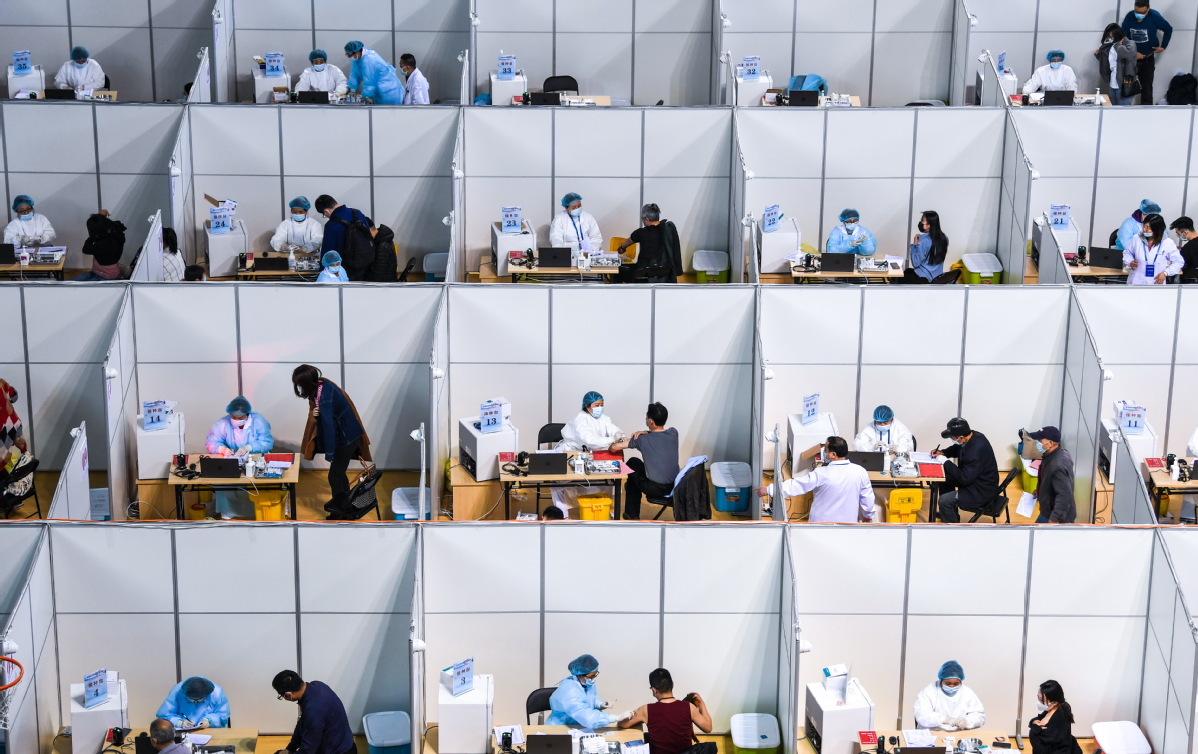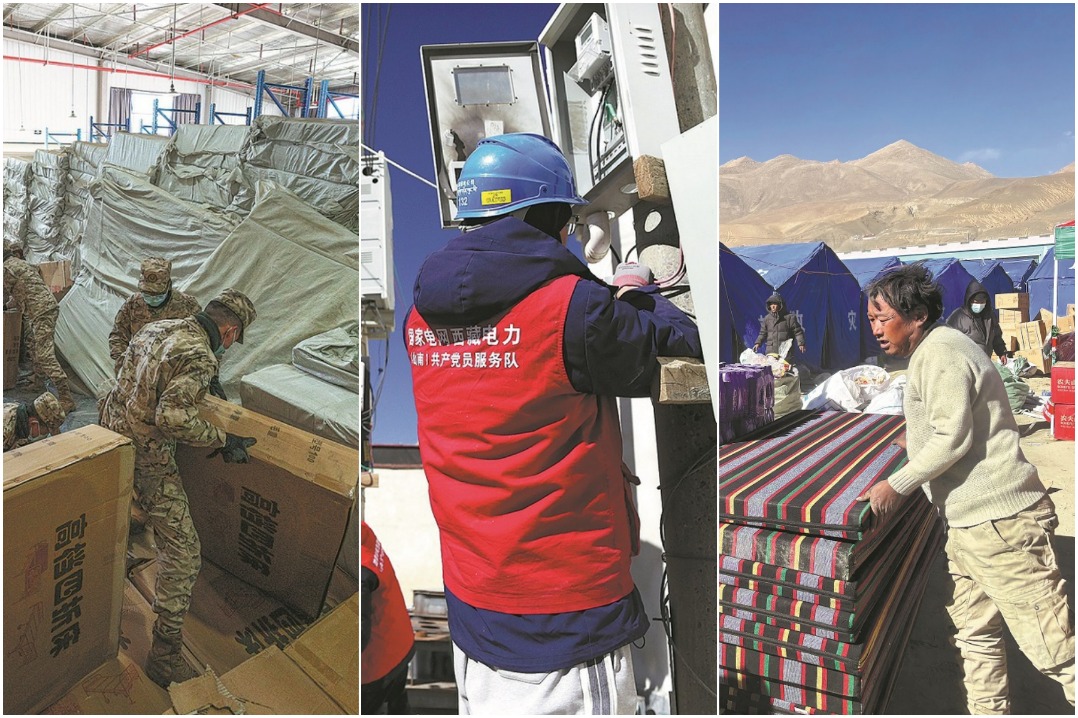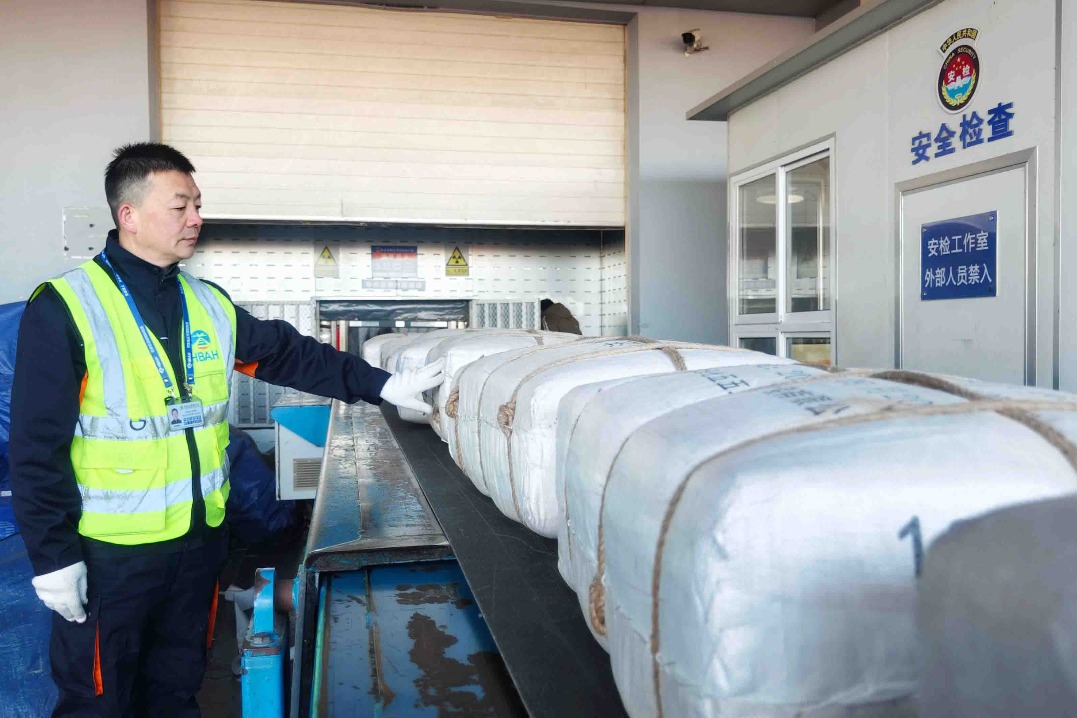COVID-19 herd immunity feasible in China, experts say


Stronger effort needed to boost the public's confidence about getting shots
Speeding up COVID-19 vaccinations to reach herd immunity in China will be a challenging but feasible task, health experts have said, calling for stronger efforts to raise public awareness about vaccines and make the inoculation process more convenient and considerate.
Vaccination distribution across the country has been gaining momentum in recent weeks, with nearly 165 million doses administered and daily inoculations exceeding 6 million doses on several occasions, official data showed.
But reaching the estimated herd immunity threshold of 70 to 80 percent is a formidable endeavor and will require innovative and concerted efforts, Gao Fu, director-general of the Chinese Center for Disease Control and Prevention, said during a forum in Chengdu, capital of Sichuan province, on Saturday.
"The mass vaccination drive faces constraints posed by limited inoculation sites and a lack of understanding of the significance and urgency to obtain vaccines, among other factors," he said.
Public health experts have said that the country hopes to vaccinate 40 percent of the population by June or July, and 70 percent by the end of this year or early next year. By early this month, less than 5 percent of the population had been fully vaccinated, according to official data.
Rapid vaccine rollouts in other nations-with Israel, Chile and the United States leading the race-h(huán)ave also put pressure on China, they have said.
Zheng Zhongwei, a National Health Commission official who is head of China's COVID-19 vaccine development task force, said vaccine coverage in China is much lower than that in some other countries.
"One of my biggest concerns is that the public will view inoculations as unnecessary because the epidemic is effectively controlled in the country and we live in a relatively very safe environment," he said.
But subduing the virus' local transmission through non-pharmaceutical measures, such as lockdowns and restricting movement, has caused significant economic losses, Zheng said.




































